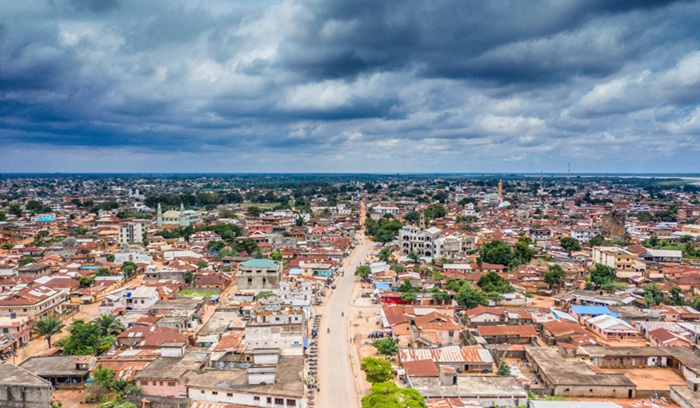Benin has embarked on a strategic national effort to place solar power at the core of its energy policy. This decisive move aims to achieve energy independence and accelerate the nation’s economic development. By prioritizing rapid deployment of solar technology, Benin is establishing a resilient, low-carbon energy system. This commitment serves as a powerful model for sustainable development across West Africa.
This shift directly addresses the long-standing challenges of electricity access and reliability. It promises to stabilize the national grid and provide clean power to millions of citizens.
Achieving Energy Sovereignty
The core good news of Benin’s policy is its commitment to energy sovereignty. Historically, Benin has been highly reliant on electricity imports, primarily from neighboring countries. This reliance exposed the nation to supply instability and fluctuating costs. The new policy mandates a massive national build-out of solar photovoltaic (PV) capacity to counter this vulnerability.
This strategic investment ensures that Benin can generate reliable power domestically. By reducing dependence on external energy sources, the nation gains control over its own energy future. This stability is essential for attracting foreign investment and guaranteeing the smooth operation of businesses and industries. This commitment to self-sufficiency is a strong foundation for long-term national prosperity.
Rapid Deployment and Measurable Growth
Benin’s solar push is characterized by rapid, measurable deployment across all scales. The government has prioritized utility-scale solar farms to feed the national grid. Simultaneously, it supports the widespread adoption of off-grid and mini-grid solar solutions in rural areas. This dual approach ensures that both urban and remote populations benefit from the clean energy transition.
The nation has seen significant capacity additions in recent years. This rapid growth directly improves electricity access rates and reduces reliance on expensive, polluting diesel generators. The efficiency of solar installation makes it the fastest way to electrify remote areas. This is a critical factor in achieving universal energy access. The International Renewable Energy Agency (IRENA) tracks the acceleration of renewable capacity in West Africa.
Empowering Economic and Social Development
The adoption of solar power delivers immense positive impacts on economic and social development. Reliable electricity is foundational for modern services like healthcare and education. Solar power enables rural health clinics to refrigerate vaccines and supports students who need lighting to study after dark.
Furthermore, solar energy fuels local entrepreneurship. The availability of reliable power encourages the growth of small and medium-sized enterprises (SMEs). This decentralization of power generation is a key strategy for poverty reduction. It empowers local economies and creates sustainable jobs in installation and maintenance. This focus on equitable access highlights the social justice benefits of the clean energy transition. The African Development Bank (AfDB) supports these decentralized energy solutions.
A Model for Sustainable Governance
Benin’s commitment to solar is a powerful model for sustainable governance across Africa. It proves that developing nations can strategically prioritize clean energy over outdated, carbon-intensive infrastructure. The nation is aligning its energy policy directly with global climate goals. This choice positions Benin as a climate leader in its region.
This move reinforces the global commitment to sustainable development. It provides a hopeful blueprint for nations seeking to achieve the UN Sustainable Development Goal (SDG) 7, which targets universal access to affordable, reliable, and sustainable energy. The United Nations Development Programme (UNDP) works with nations to achieve these energy SDGs. The sustained focus on solar capacity ensures the nation’s long-term environmental and economic health. The International Energy Agency (IEA) provides comprehensive analysis on Africa’s energy outlook and solar potential.
Resources
- International Renewable Energy Agency (IRENA) on Renewable Capacity in Africa
- African Development Bank (AfDB) on Decentralized Energy Solutions
- United Nations Development Programme (UNDP) on Energy SDGs and Access
- International Energy Agency (IEA) on Africa Energy Outlook
More Good News
-

Senegal launches all-electric bus network powered by renewable energy
Senegal has successfully launched a transformative Bus Rapid Transit system in Dakar, featuring a fleet of 121 fully electric buses. As the first network in Sub-Saharan Africa to operate entirely on renewable energy, the initiative utilizes local solar power to transport up to 300,000 passengers daily. By utilizing dedicated lanes, the clean energy fleet cuts cross-city commute times in half while preventing nearly 60,000 tons of carbon dioxide emissions annually. This monumental project dramatically improves urban air quality and establishes Senegal as a pioneering leader in sustainable, green public infrastructure.
-

Yangtze River showing remarkable ecological recovery following fishing ban
China’s Yangtze River is experiencing a remarkable ecological revival five years into a sweeping ten-year commercial fishing ban. Recent surveys reveal significant increases in overall fish biomass and the heartening return of critically endangered species in the world’s fifth largest river. Furthermore, thousands of former commercial fishers have been successfully transitioned into new roles as official river guardians. This massive conservation effort offers a hopeful, replicable model for global freshwater restoration.
-

Rob Jetten becomes The Netherland’s first openly gay prime minister
In a historic victory for representation and progressive politics, Rob Jetten has been sworn in as the first openly gay Prime Minister of the Netherlands. At 38 years old, the centrist Democrats 66 leader is also the youngest head of government in Dutch history. Jetten successfully formed a minority coalition government following a tense election that defeated far-right populist opponents. His platform prioritizes climate investment, economic fairness, and strong international collaboration. Jetten’s premiership powerfully reaffirms the Netherlands’ global legacy as a pioneer of LGBTQ+ equality and inclusive, cooperative democratic leadership.
-

Millions of New York City workers gain additional time off through new law
Millions of workers in New York City are benefiting from a major expansion of the Protected Time Off Law, which officially took effect in late February 2026. The progressive legislation grants employees an additional 32 hours of unpaid, protected leave that is available immediately upon hire or at the start of the calendar year. This ensures workers do not have to wait to accrue hours before addressing sudden medical emergencies or family crises. The law also vastly expands permitted uses to include mental health care, public disaster recovery, and caring for disabled loved ones.
-

Malaysia bans electronic waste imports to protect the environment and public health
In a monumental victory for public health and environmental justice, Malaysia has enacted an immediate and absolute ban on the importation of electronic waste. By removing regulatory loopholes and launching a strict enforcement campaign, the nation is successfully preventing toxic heavy metals from polluting its soil and waterways. Authorities have already intercepted hundreds of thousands of kilograms of illegal e-waste at major ports, vowing to return the hazardous materials to their countries of origin. This decisive action establishes Malaysia as a leading force in Southeast Asia’s growing movement to reject global waste and prioritize ecological sustainability.
